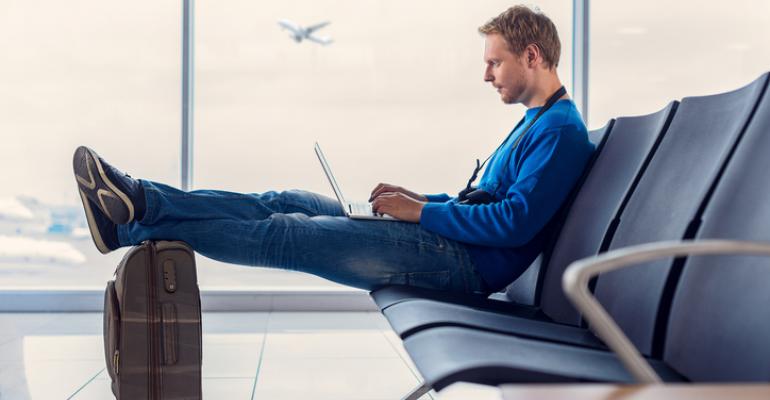Six months ago, the Trump administration, concerned about terrorists hiding bombs in laptops, decided that electronic devices larger than an iPad needed to be checked in the aircraft’s hold instead of brought into the cabin on flights from certain countries. There was an outcry from business travelers concerned about loss of productivity (and also loss of laptops) and various sources, including the United Nations’ aviation authority, sounded the alarm about the possibility of lithium battery fires in the hold. Martin Sirk, CEO of the International Congress and Convention Association, summed up why the policy decreased rather than increased passenger safety in his comments to MeetingsNet. He said, “Unless someone has invented an explosive that is invisible to hand-baggage scanners and sensors, but which somehow is technically unable to cause damage when exploding in checked luggage, I struggle to find a rational response to such a policy. Presumably, it will still be OK to carry laptops on domestic flights within the U.S., and on flights originating in the U.S. going to all other destinations. Given that, I am not 100 percent convinced the boarding security checks in Fairbanks, Oakland, and Springfield are superior to those of Heathrow, Charles De Gaulle, and Schiphol. There seems to be a logical inconsistency, to say the least.”
While the policy was dropped, largely due to improved screening methods adopted by the countries involved, it seems that the discussion on laptop batteries triggered further examination of the evidence and a flip-flop on proposed aircraft safety policy. Tests by the United States Federal Aviation Authority found that laptops overheating in cargo holds could start fires that would overwhelm cargo fire control methods if they spread to aerosol cans and other hazardous objects routinely found in checked baggage. This week, at a conference in Montreal, Canada, for the International Civil Aviation Organization, a paper submitted by the FAA is on the agenda for discussion. The paper, which is likely to lead to a change in international policy, focuses on the safety of personal electronic devices and recommends that laptops should always be stored in the aircraft’s cabin, unless the lithium battery has been removed. The recommendation is based on significant evidence. The FAA office of Security and Hazardous Materials Safety has recorded 132 cases of fires and smoke caused by battery-powered devices, and an industry paper, Smoke, Fire, and Fumes in Transport Aircraft, from Britain’s Royal Aeronautical Society, calls lithium batteries, “one of the largest trends in the growth of in-flight fire” and details three instances where a plane crashed due to a lithium battery fire.





